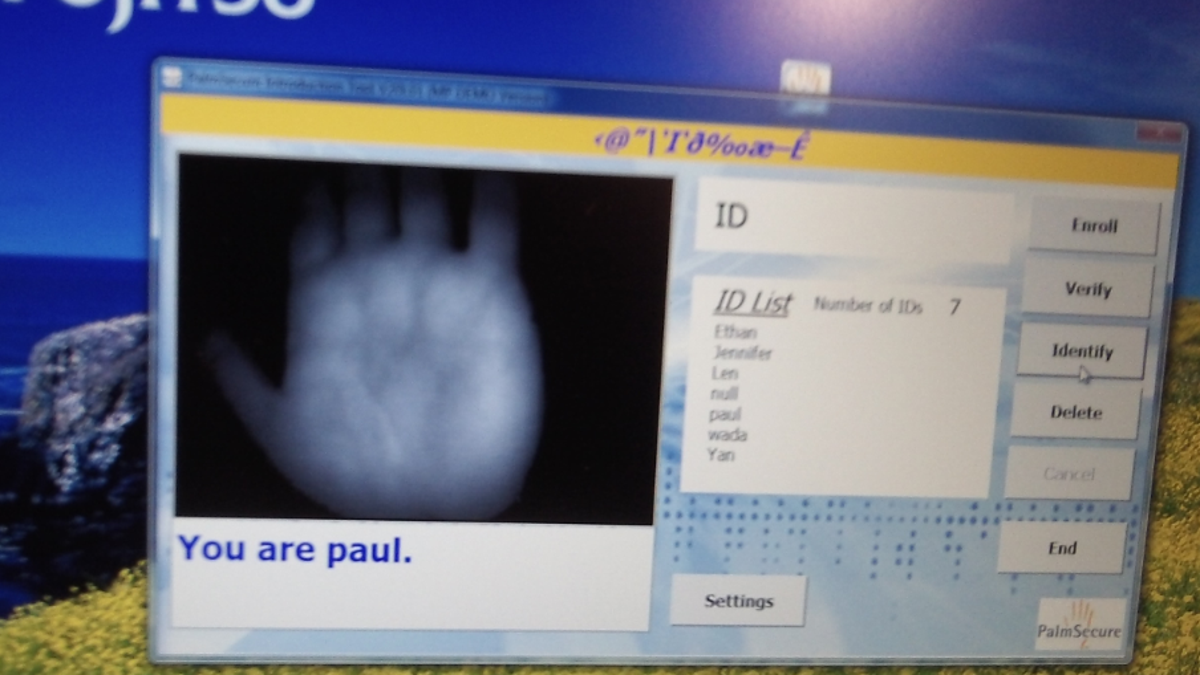PalmSecure turns your blood flow into key for your laptop
Biometric authentication technology is now small enough for laptops and other devices.
LAS VEGAS--Long before "face unlock" on Android 4.0, Fujitsu developed an even more intimate method for secure user identification--your blood flow.
PalmSecure is a technology that's actually been around for a few years now in Japan, and in a number of business applications ranging from health care to banking, but not seen so much in consumer electronics in the U.S. It uses a biometric authentication system that reads your palm vein pattern. Fujitsu reps here at CES tell me it works only on veins with an active blood flow, so put away your "Mission: Impossible" 3D printers and molds--this tech requires the real thing.
The palm-scanning technology has already been seen built in to mice and full-size keyboards, but Fujitsu says the tech has now shrunk to the point where it can easily be integrated into laptops and other devices.
Laptops with PalmSecure are now available in Japan, and the company is currently "looking at" North America. I won't hold my breath, although if I did, it would make my veins even easier to read.


